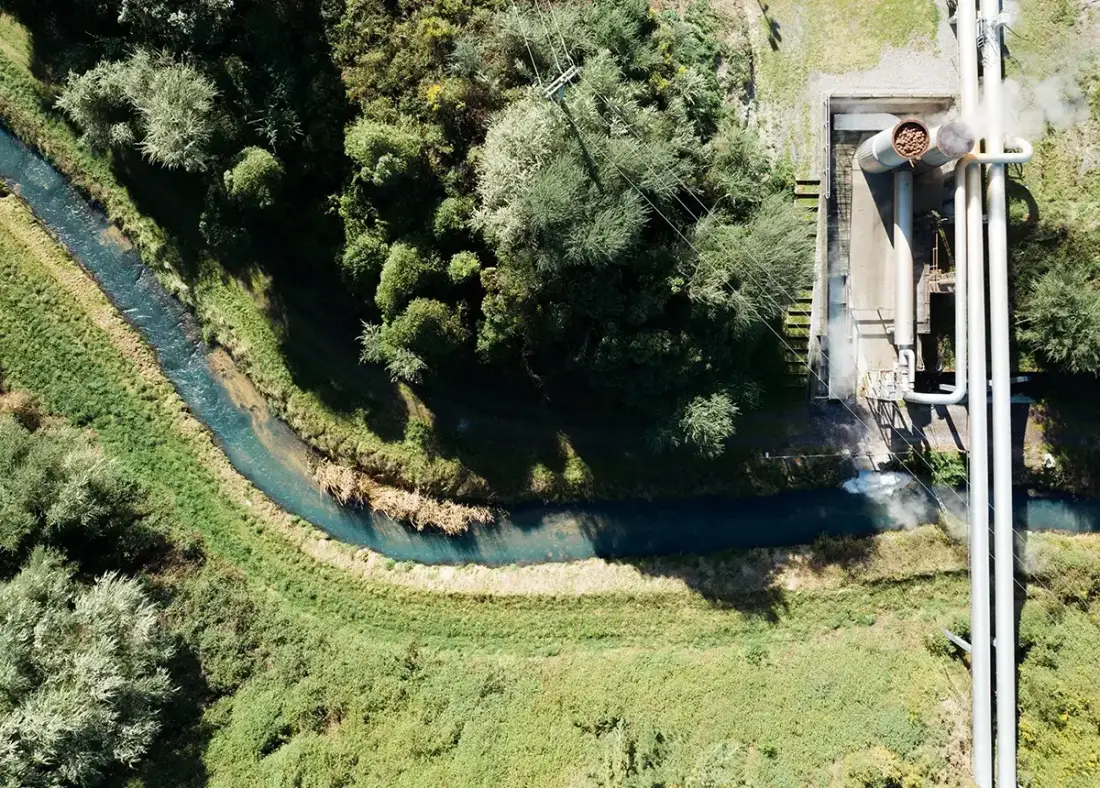Informing industry about regional energy opportunities
The Regional Energy Transition Accelerator (RETA) programme provides a comprehensive understanding of the actions that could be taken to enhance energy efficiency, bolster supply security, and significantly reduce emissions across New Zealand regions.
It focuses on practical, commercially relevant pathways to renewable alternatives such as electricity, geothermal and biomass.
The programme worked across medium and large energy users and those who supply energy – including biomass producers and suppliers, and electricity providers, as well as government, regional economic development agencies (EDAs), Iwi and industry groups.
Key workstreams
RETA draws on four main workstreams to provide a regional view of opportunities for replacing fossil fuels in process heat.
- Demand assessment maps site-level process heat needs and potential timing for energy source replacement, using EECA data and regional inputs.
- Electricity analysis estimates available network capacity and upgrade costs to electrify demand.
- Biomass workstream examines regional bioenergy availability, types, and supply chain costs through forestry data and industry input.
- Economic analysis models project and site-level replacement costs to develop regional scenarios, drawing on findings from all workstreams.
RETA used 2022 as the baseline for thermal energy demand. Since then, gas supply constraints have shifted fossil gas prices and usage patterns, making it increasingly important that organisations understand the alternative fuel options for their processes, ensuring a secure and affordable supply.
The RETA Dashboard
The outputs from the RETA programme, which are spread throughout the regional reports published to date, are brought together in one place in the RETA dashboard. The RETA map view displays the locations of:
- process heat demand sites that are using fossil fuels, along with their current thermal energy demand (as at 2022) and potential future fuel demands
- forests and wood-processors
- electricity grid exit points (GXPs) and substations
- regional boundaries.
The dashboard also contains the outputs/results of the economic analysis – including the regional biomass availability and the potential future fuel demands in the region if the sites switch from fossil fuels to electricity or biomass.
Next steps
Each RETA report provides a regional picture of energy options, infrastructure needs, and potential pathways for switching from fossil fuels to renewable energy for process heat. It highlights both barriers and opportunities – helping industry plan with greater confidence around fuel choice, timing, and long-term supply security.
As energy markets evolve, EECA will draw on this information to inform future initiatives and provide support for individual organisations and regions.
How RETA is applied
A RETA is completed in two stages – planning and implementation. Though there is expected to be some intersection.
The planning stage culminates in a regional report to:
- provide process heat users with coordinated information specific to the region to make more informed decisions on fuel choice and timing
- improve fuel supplier confidence to invest in supply side infrastructure
- surface issues, opportunities and recommendations.
Through collaboration, the implementation stage aims to:
- identify the regionally supported barriers or opportunities
- support regional energy users and suppliers with committing to and fast-tracking decarbonisation projects, using the information from the planning stage.

